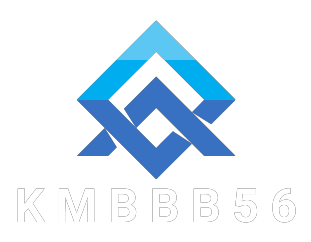In the fast-paced world of marketing, creativity meets technology to drive successful campaigns. One of the most transformative advancements in recent years is the integration of artificial intelligence (AI) into ad creative processes. This trend is reshaping how marketing teams approach their campaigns, making Ad Creative AI essential for modern marketing strategies. Here’s why.
1. Enhanced Creativity Through Data-Driven Insights
AI-powered tools analyze vast amounts of data to identify trends, preferences, and behaviors among target audiences. By leveraging these insights, marketing teams can create ad content that resonates more deeply with potential customers Ad creative ai. This data-driven approach helps ensure that the creative elements—be it visuals, messaging, or calls to action—are tailored to what the audience genuinely values.
2. Streamlined Content Generation
Creating high-quality ad content can be time-consuming and resource-intensive. Ad Creative AI simplifies this process by automating the generation of ad variations. From crafting copy to designing visuals, AI tools can produce multiple iterations of an ad, allowing marketers to test different approaches quickly. This not only saves time but also enables teams to focus on refining their strategies based on performance data.
3. A/B Testing Made Easy
A/B testing is a cornerstone of effective marketing, allowing teams to compare different versions of an ad to see which performs better. AI streamlines this process by quickly generating numerous variations and optimizing them based on real-time performance metrics. Marketers can thus iterate rapidly, honing in on the most effective creative elements without extensive manual intervention.
4. Personalization at Scale
In today’s market, personalization is key to standing out. Ad Creative AI enables marketers to deliver highly personalized content to large audiences. By analyzing user data, AI can generate customized ad experiences for different segments, ensuring that each audience group receives content that speaks directly to their interests and needs. This level of personalization can lead to higher engagement rates and improved conversion metrics.
5. Predictive Analytics for Creative Strategy
AI tools are equipped with predictive analytics capabilities that allow marketing teams to anticipate future trends and consumer behavior. By analyzing historical data, AI can help identify what types of creative content are likely to succeed in upcoming campaigns. This foresight enables marketers to stay ahead of the curve, adjusting their strategies proactively rather than reactively.
6. Optimized Ad Spend
Budget constraints are a reality for most marketing teams. Ad Creative AI can help optimize ad spend by identifying the most effective ad placements and formats. By analyzing performance data, AI tools can recommend where to allocate resources for maximum impact, ensuring that marketing dollars are spent wisely.
7. Improved Collaboration and Efficiency
With the integration of AI into the creative process, marketing teams can work more efficiently and collaboratively. AI tools facilitate communication and coordination among team members, streamlining workflows and ensuring that everyone is on the same page. This enhanced collaboration fosters a more innovative environment where creative ideas can flourish.
8. Future-Proofing Marketing Strategies
As AI technology continues to evolve, its applications in marketing will only expand. By adopting Ad Creative AI now, marketing teams position themselves to leverage future advancements in AI capabilities. Staying ahead of the technological curve ensures that teams remain competitive and can adapt to changing consumer preferences and market dynamics.
Conclusion
Incorporating Ad Creative AI into marketing strategies is no longer just an option; it’s essential for modern marketing teams aiming to succeed in a digital-first world. By harnessing the power of AI, teams can enhance creativity, streamline workflows, optimize ad spend, and ultimately drive better results. As the landscape of marketing continues to evolve, those who embrace AI will be better equipped to meet the demands of today’s consumers and thrive in an increasingly competitive marketplace.
